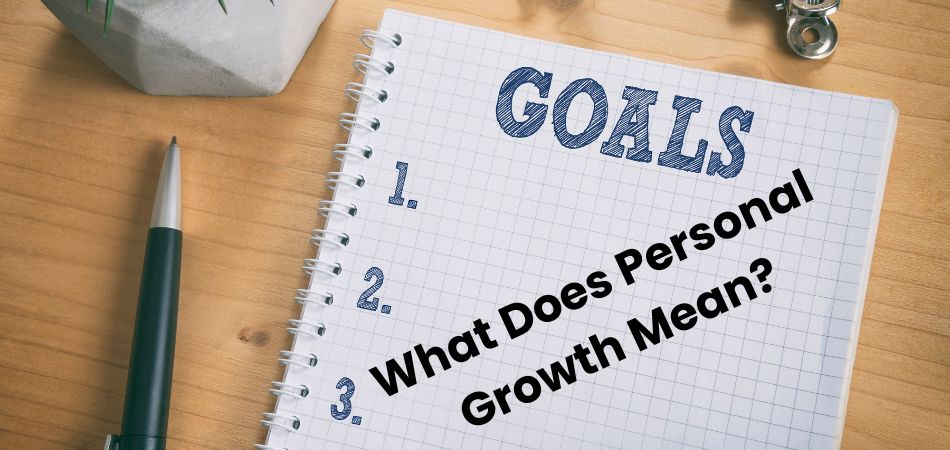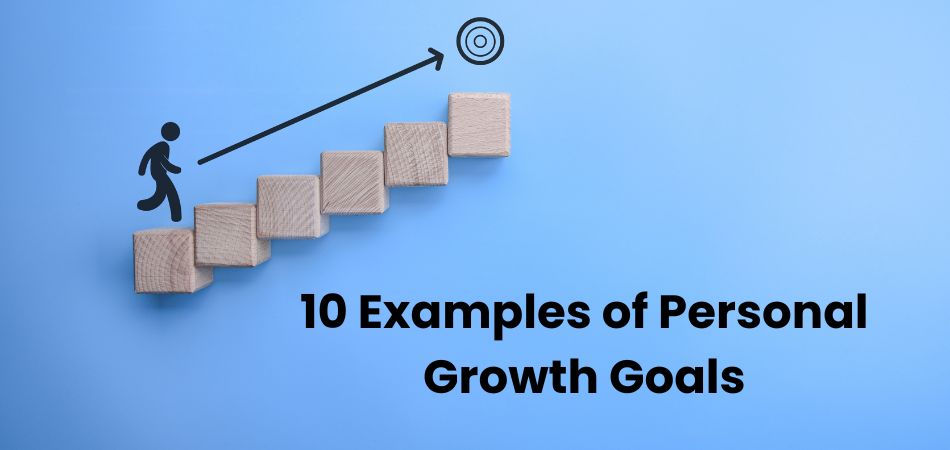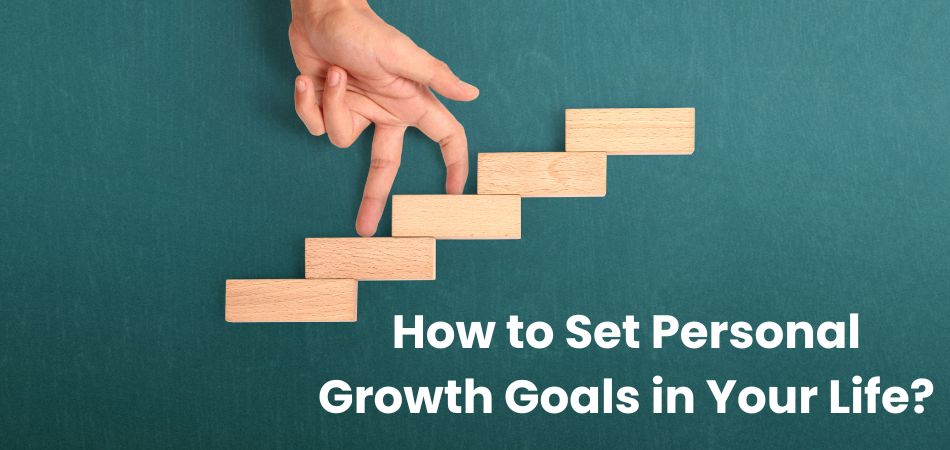Personal growth is a journey of self-discovery and improvement, allowing us to evolve into better versions of ourselves. Whether it’s developing new skills, promoting healthier relationships, or building emotional resilience, growth stems from setting meaningful goals.
These goals serve as a roadmap, guiding you toward becoming more fulfilled and well-rounded. To inspire your own journey, we’ve compiled 10 examples of personal growth goals that can lead to positive change in your life.
Some of the examples of personal growth goals are practicing daily gratitude, learning to say no without guilt, improving listening skills, starting a journal, reducing screen time, and exploring new hobbies quarterly.
Are you ready for a brighter future? Take a look at the full list and discover actionable ideas to fuel your personal development journey.
What Does Personal Growth Mean?
Personal growth is the continuous process of improving oneself in various aspects of life, including emotional, intellectual, social, and physical dimensions. It involves self-reflection, learning, and deliberate efforts to become a better version of yourself. At its core, personal growth is about recognizing your potential, addressing areas for improvement, and taking steps toward a more fulfilling and purposeful life.

This journey often begins with self-awareness—realizing your values, strengths, weaknesses, and aspirations. Once you have clarity, set SMART goals to ensure your efforts align with your aspirations, whether it’s learning new skills, building healthier habits, or improving relationships. Personal growth is not always linear; it requires patience and resilience to overcome setbacks and see challenges as opportunities for growth.
So, personal growth is deeply personal and unique to each individual. It’s about aligning your actions with your goals and values while finding balance and fulfillment. By committing to this journey, you open the door to a more meaningful and empowered life.
Why is Personal Growth Important in Our Life?
Personal growth is essential for leading a fulfilling and meaningful life. It empowers us to reach our full potential, adapt to challenges, and find deeper satisfaction in what we do. Below are some key reasons why personal growth is important, each offering a great perspective on its transformative impact.
Enhances Self-Awareness and Knowledge
Personal growth allows you to reflect on your thoughts, emotions, and behaviors, promoting greater self-awareness. When you understand yourself better, you can make more informed decisions that align with your values. This clarity helps you move through life with confidence and authenticity.
Builds Resilience and Adaptability
Life is full of unexpected changes, and personal growth equips you with the tools to face them. By working on emotional strength and flexibility, you can handle setbacks with grace. This resilience empowers you to bounce back stronger from challenges.
Improves Relationships
As you grow personally, your ability to connect with others improves. Better communication, empathy, and understanding are natural outcomes of self-improvement. These qualities strengthen your relationships, advancing deeper connections and mutual respect.
Boosts Professional Success
Personal growth contributes to career advancement by building skills like time management, leadership, and problem-solving. It positions you as someone who is proactive and adaptable in the workplace. Employers value individuals who demonstrate a commitment to continuous improvement.
Leads to a Fulfilling and Purposeful Life
When you invest in personal growth, you align your actions with your goals and values. This alignment brings a sense of purpose, guiding you toward a more satisfying and meaningful existence. So, personal growth enables you to live a life true to yourself.
10 Examples of Personal Growth Goals
Personal growth goals can inspire positive changes in many areas of life, from building new habits to broadening your horizons. These goals are not just about self-improvement; they’re about creating a balanced, fulfilled, and meaningful life. Below are 10 examples of personal growth goals to help you succeed in different areas of your life.

1. Develop a Daily Gratitude Practice
Cultivating gratitude helps shift your focus from what’s lacking to what’s abundant in your life. Start by writing down three things you’re grateful for each day, no matter how small they seem. This practice can boost your mood, reduce stress, and improve your overall outlook. Over time, gratitude becomes a natural part of your mindset.
2. Learn to Say No Without Guilt
Setting boundaries is essential for personal growth and mental well-being. Practice saying no to requests or tasks that don’t align with your priorities. This helps you focus on what truly matters and prevents burnout. Remember, saying no to others often means saying yes to yourself.
3. Read One Book Per Month
Expanding your knowledge is a powerful way to grow intellectually and personally. Choose books that challenge your thinking, teach new skills, or inspire you. By committing to reading one book a month, you’ll develop a consistent learning habit. This goal also provides a break from digital distractions.
4. Improve Your Listening Skills
Listening is a cornerstone of effective communication and meaningful relationships. Practice active listening by giving your full attention to others and reflecting back what you hear. Avoid interrupting or formulating responses while the other person is speaking. This skill builds deeper connections and reduces misunderstandings.
5. Start a Journal to Reflect on Your Day
Journaling helps you process your thoughts, emotions, and experiences. Spend a few minutes each evening jotting down what went well, what could be improved, and what you learned. This habit encourages self-awareness and keeps you accountable to your personal growth goals. Over time, you’ll gain valuable insights into your patterns and progress.
6. Try a New Hobby Every Quarter
Exploring new hobbies can spark creativity and help you discover hidden talents. Whether it’s painting, cooking, or learning an instrument, trying something new keeps your mind engaged. Set a goal to pick up a new hobby every three months and commit to practicing it regularly. This variety enriches your life and prevents stagnation.
7. Reduce Screen Time and Be Present
Excessive screen time can affect your mental health and productivity. Set specific limits on how much time you spend on devices each day. Use the extra time to connect with loved ones, pursue hobbies, or simply relax without distractions. This goal helps you reclaim your time and live more intentionally.
8. Volunteer for a Cause You Care About
Giving back to the community promotes a sense of purpose and fulfillment. Identify a cause that aligns with your values and dedicate time to supporting it. Volunteering helps you connect with like-minded individuals and build a deeper awareness of societal challenges. It’s a powerful way to grow through service.
9. Create a Morning Routine That Energizes You
A structured morning routine sets the tone for a productive and positive day. Include activities like meditation, exercise, or reading to boost your energy and focus. Personalize the routine to your needs and experiment until you find what works best. Consistently starting your day with intention can transform your mindset.
10. Work on Letting Go of Perfectionism
Perfectionism can hold you back from taking risks and accepting opportunities. Set a goal to focus on progress rather than perfection in your endeavors. Celebrate small wins and remind yourself that mistakes are part of growth. By letting go of perfectionism, you’ll feel more liberated and motivated to pursue your goals.
Some Personal Growth Goals for Students
Personal growth goals are essential for students to advance academically, socially, and emotionally. These goals help students develop skills, habits, and mindsets that will serve them throughout their lives. Below are some practical and impactful personal growth goals designed specifically for students.
1. Learn Time Management for Academic Success
Effective time management is a crucial skill for students juggling multiple responsibilities. Start by creating a daily schedule that prioritizes assignments, study sessions, and extracurricular activities. Use tools like planners or apps to stay organized and ensure deadlines are met. By managing your time well, you reduce stress and achieve a healthy balance between academics and personal life.
2. Develop a Growth Mindset Toward Learning
A growth mindset encourages students to view challenges as opportunities for improvement. Consider the idea that intelligence and abilities can be developed through effort and practice. Celebrate progress, not just results, and reflect on lessons learned from setbacks. This mindset fuels perseverance and enthusiasm for continuous learning.
3. Practice Effective Goal Setting for Long-Term Vision
Set SMART goals (Specific, Measurable, Achievable, Relevant, and Time-bound) to stay focused on your aspirations. Break larger goals into smaller, actionable steps to track progress and maintain motivation. Regularly review and adjust your goals as your interests and priorities evolve. This habit prepares students to tackle challenges with clarity and purpose.
4. Cultivate Emotional Regulation Skills
Managing emotions is crucial for handling stress, conflicts, and peer interactions. Practice mindfulness techniques, such as deep breathing or meditation, to stay calm in challenging situations. Learn to identify triggers and develop coping strategies to manage them effectively. Emotional regulation improves focus, relationships, and overall well-being.
5. Improved Public Speaking and Presentation Abilities
Strong communication skills are invaluable for academic and professional success. Volunteer for class presentations, join debate clubs, or practice speaking in front of small groups. Focus on improving clarity, confidence, and engagement when addressing an audience. Over time, you’ll build the poise needed to express your ideas effectively in any setting.
How to Set Personal Growth Goals in Your Life?
A fulfilling and purposeful life begins with setting personal growth goals. By identifying what truly matters and taking intentional steps, you can make consistent progress in various aspects of life. Here are some essential steps to help you set effective personal growth goals.

1. Start with Self-Reflection
Take time to discuss where you are in life and where you want to go. Consider your strengths, weaknesses, values, and passions to identify areas for improvement. Self-reflection provides clarity and a solid foundation for setting meaningful goals.
2. Define Your Vision for Growth
Imagine the person you want to become in the future. Write down what personal, professional, or emotional growth looks like to you. This vision acts as your north star, guiding your goal-setting process and keeping you motivated.
3. Break Goals into Manageable Steps
Divide your larger growth goals into smaller, actionable tasks. Focus on daily or weekly milestones that lead you toward your final objective. This approach makes progress tangible and reduces the overwhelm of tackling big goals.
4. Set a Realistic Timeline
Determine a timeframe for achieving each of your goals. Be specific about deadlines, but allow flexibility to adjust as needed. A realistic timeline creates urgency while accommodating the unpredictability of life.
5. Track Your Progress Regularly
Monitor your progress to ensure you’re staying on track with your goals. Use journals, apps, or checklists to record achievements and setbacks. Reflecting on your progress helps you identify what’s working and what needs adjustment.
6. Celebrate Milestones Along the Way
Recognize and reward yourself for achieving small milestones. Celebrations boost motivation and reinforce the positive habits you’re building. Acknowledging your efforts makes the journey of personal growth more enjoyable and fulfilling.
Frequently Asked Questions (FAQs)
Personal growth is a fascinating topic, but it often sparks questions about how to get started and stay on track. Addressing these common questions can provide clarity and actionable steps for anyone on their journey of self-improvement. Below are some frequently asked questions about personal growth, with concise and practical answers.
1. What Is the Best Way to Start Personal Growth?
Consider improving one area of your life, such as your mindset, habits, or skills. Reflect on why this area matters to you and what changes would make the biggest impact. Start small with achievable steps to build momentum and confidence in your growth journey.
2. How Do I Stay Motivated During Personal Growth?
Motivation comes from setting clear goals and connecting them to your deeper values and aspirations. Break larger goals into smaller tasks, and celebrate progress along the way. Surround yourself with supportive people who inspire and encourage your growth.
3. Can Personal Growth Happen Without Setting Goals?
While spontaneous growth can occur through experiences, setting goals provides a deliberate and focused approach. Goals give you direction, helping you make intentional choices that align with your vision. Without them, growth may feel aimless or inconsistent.
4. How Long Does It Take to See Results from Personal Growth?
The timeline varies depending on the goals and your level of commitment. Some changes, like improving habits, may show results in weeks, while others, such as developing skills or changing mindsets, can take months or years. Focus on consistent effort rather than the speed of results.
Final Notes
Personal growth is an ongoing journey that helps you become the best version of yourself. By setting meaningful goals and taking intentional steps, you can explore your potential and lead a more fulfilled life.
Whether you aim to build better habits, develop new skills, or strengthen your relationships, growth begins with action. The 10 examples of personal growth goals we’ve shared provide practical inspiration to get started.
Remember, progress takes time, and every small step counts toward a brighter future. Take part in the process, stay consistent, and celebrate your achievements along the way. Your journey to personal growth starts today.
